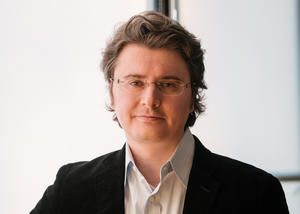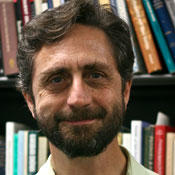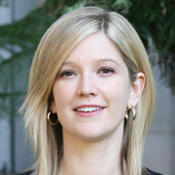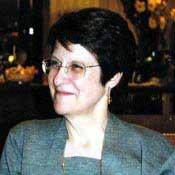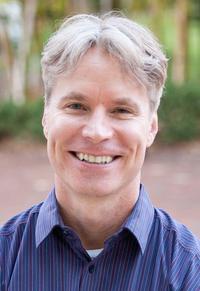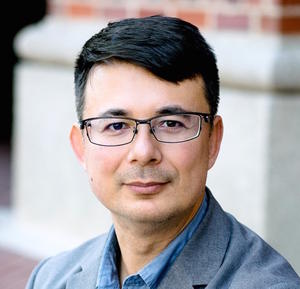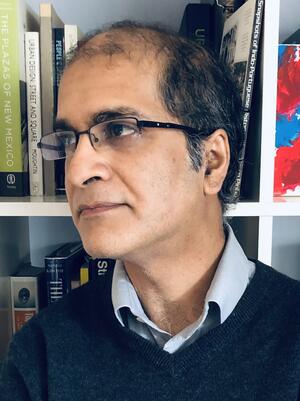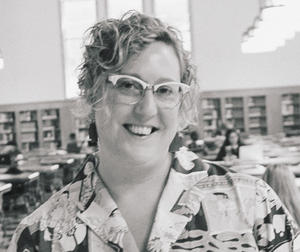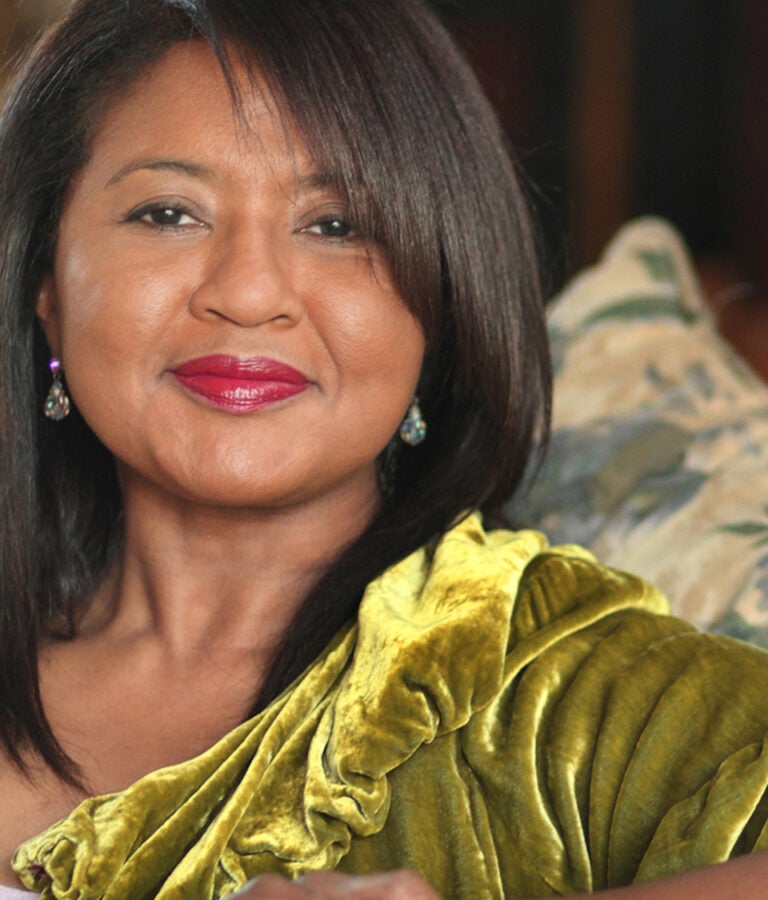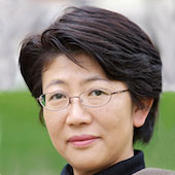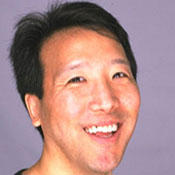Associate Professor, East Asian Languages and Cultures
—
David Bialock’s research focuses on classical Japanese literature, especially the body of medieval literature related to The Tale of the Heike and its variants. Other interests include Japanese poetry from classical waka to the haiku tradition, and the interactions between East Asian poetic practices and various twentieth century modernisms from imagism to objectivism, etc. At present, he is working on several projects: a study of musical ideas in Japanese literature and ritual; and a collection of essays in ecocriticism that applies interdisciplinary perspectives to the study of literature, ritual, and the environment. In his teaching teaching, Bialock brings Japanese literature into dialog with world literature, and vice-versa. Recent teaching includes courses in Japanese fiction and film and a course on Japanese and East Asian literature and the environment. He is author of Eccentric Spaces, Hidden Histories: Narrative, Ritual, and Royal Authority from The Chronicles of Japan to The Tale of the Heike (Stanford University Press, 2007).
E-mail: bialock@usc.edu
Associate Professor and Chair, School of Religion
—
Lori Meeks’ research interests are in the social, cultural, and intellectual histories of Japanese Buddhism. Much of her work has focused, in particular, on clarifying the roles of women as consumers and practitioners of Buddhism in the Heian and Kamakura periods (roughly ninth through early fourteenth centuries). Her research has also attempted to shed light on the ways in which gender is handled in Buddhist texts, on the roles that Buddhist texts played in the dissemination of gendered ideology, and on popular responses to doctrinal discussions of sex and gender. Other interests include the social history of monasticism and the role of the arts in Buddhist practice. She is author of a Hokkeji and the Reemergence of Female Monastic Orders in Premodern Japan (University of Hawai’i Press, 2010), and is currently working on a manuscript titled In the Shadows of the Sacred: Women and Popular Buddhism in Premodern Japan, and another titled How Buddhist Views of the Female Body Entered Popular Discourse: Tracing Ideological Change in Late Medieval and Early Modern Japan.
E-mail: meeks@usc.edu
Gordon L. MacDonald Chair in History and Professor, History and East Asian Languages and Cultures
—
A premier Japan historian, Joan R. Piggott is an expert on premodern Japan and East Asia. Her specialties include the development of kingship, church-state relations, land tenure, and family in Japan. Her seminal study, The Emergence of Japanese Kingship (Stanford University Press, 2007), combined written records with archaeological evidence to illuminate the reigns of seven Japanese monarchs between the third and eighth centuries. While at Cornell she organized a series of workshops on reading and translating kambun (Sino-Japanese), and those workshops are continuing at USC.
E-mail: joanrp@usc.edu
Associate Director, USC Shinso Ito Center for Japanese Religions and Culture
Professor, Comparative Literature
—
Jason Webb’s research interests lie in Japan’s seventh, eighth, and ninth centuries: the reception of Chinese texts in the archipelago, connections between literary theory and political authority, the architecture of royal poetic anthologies, and poetry composed in Japanese and Chinese. Jason publishes articles in both English and Japanese, most recently “East Asian Bibliographic Traditions and Current Japanese Premodern Archives Studies,” in Tajima Isao, ed., Kinri kuge bunko kenkyū, vol. 7 (2020), “F. V. Dickins’ Man’yōshū Poetics” (Man’yōshū Kodaigaku kenkyūnenpō, 2017, Japanese), and “The Big Business of Writing: Monjō keikoku in the Early Heian Court of Saga Tennō” (Sino-Japanese Studies, 2014). He currently is at work on a book-length manuscript about premodern Japanese archives and a co-edited volume entitled Before Nara.
E-mail: jasonweb@usc.edu
Director, USC Shinso Ito Center for Japanese Religions and Culture
Professor of Religion and East Asian Languages and Cultures
—
Duncan Ryūken Williams is currently Professor of American Studies & Ethnicity, East Asian Languages and Cultures, and Religion, and the Director of the USC Shinso Ito Center for Japanese Religions and Culture. Williams’ latest monograph, American Sutra: A Story of Faith and Freedom in the Second World War (Harvard University Press, 2019) is the winner of the 2022 Grawemeyer Religion Award and a LA Times bestseller. Williams is also the author of The Other Side of Zen (Princeton) and editor of seven volumes including Hapa Japan (Kaya), Issei Buddhism in the Americas (Illinois), American Buddhism (Routledge), and Buddhism and Ecology (Harvard). Find him online at duncanryukenwilliams.com.
E-mail: duncanwi@usc.edu
Associated Faculty Members
Adjunct Associate Professor, USC School of Architecture
—
Vinayak Bharne’s research focuses on contemporary urbanism in Asia, specifically the conservation of sacred territories and cities, the agency of religion in urban transformation, the urbanities of underprivileged habitats, and the nexus of urban design and water stress. A former Asia-Pacific Development Commission Traveling Scholar to Japan, he is the author of Zen Spaces & Neon Places: Reflections of Japanese Architecture and Urbanism, an 11-chapter volume on the socio-cultural trajectories and epochs that have shaped the Japanese built environment, from its prehistory to the present day. Bharne is currently directing two major design-research projects: The Complete Ise Shrine – a study of the sacred-ecological dimensions of Japan’s most revered Shinto shrine, that include rituals related to rivers, forests, mountains, agricultural fields and adjacent towns; and The Banaras Initiative – a multidisciplinary city planning framework for one of India’s oldest Hindu cities situated along the Ganga River. His other books include Rediscovering the Hindu Temple: The Sacred Architecture & Urbanism of India; Affordable Housing, Inclusive Cities; The Emerging Asian City: Concomitant Urbanities & Urbanisms; and Routledge Companion to Global Heritage Conservation. He is a contributing editor of Kyoto Journal in Japan, and Co-Director of the India-Netherlands-based knowledge platform My Liveable City.
E-mail: bharne@usc.edu
Director, Special Projects, USC Libraries
—
Rebecca Corbett’s research interests include the history and practice of Japanese tea culture (chanoyu), and early modern Japanese women’s history. In particular, her work has focused on reevaluating the role of women as practitioners and producers of Japanese tea culture historically. Her book Cultivating Femininity: Women and Tea Culture in Edo and Meiji Japan (University of Hawai’i Press, 2018) analyses privately circulated and commercially published texts to show how tea practice for women was understood, articulated, and promoted from the eighteenth through early twentieth centuries. Her current project is a study of early Western involvement in chanoyu tea practice during the Meiji period (1868-1912).
E-mail: rcorbett@usc.edu
Adjunct Associate Professor (Teaching), East Asian Languages and Cultures, Art History, East Asian Studies Center
—
Miya Elise Desjardins specializes in modern and contemporary Japanese art, design, and literature and serves as Editor-in-Chief of the Review of Japanese Culture and Society: A Design Studies Journal. Her book, Aesthetic Life: The Artistic Discourse of Beauty in Modern Japan was published by the Harvard East Asia Center in 2019. Her current book project, From Shadow to Illumination: The Designing of Light in Japan, attempts a material history of art, design, and literary works that thematize light and investigates the manner in which electric light in particular transformed the aesthetics of classical Japanese culture. Her teaching areas include: modern and contemporary Japanese design; postwar and contemporary Japanese art; Japanese photography; modern and contemporary Japanese literature and film. Among her regular classes are a practicum graduate workshop, “Publishing/Editing, Translation, and Design,” and “Japanese Society and Design Thinking,” a Maymester class for the Global East Asia Program, in which she takes students to Tokyo for field research.
E-mail: mizuta@usc.edu
Janet Goodwin
Associate-in-Research, East Asian Studies Center
—
Janet Goodwin specializes in pre-modern Japan, focusing on Japanese history and civilization, especially the history of Japanese women and the history of outcasts, vagabonds and other marginals in Japanese society. She is the author of Selling Songs and Smiles: Sexual Entertainment in Heian and Kamakura Japan (University of Hawai’i Press, 2007), and Alms and Vagabonds: Temples and Popular Patronage in Medieval Japan (University of Hawai’i Press, 1994); and co-editor, along with Joan R. Piggott, of Land, Power, and the Sacred: The Estate System in Medieval Japan (University of Hawai’i Press, 2018). She was a founding faculty member of the University of Aizu in Aizu-Wakamatsu, Japan.
E-mail: jan@cs.csustan.edu
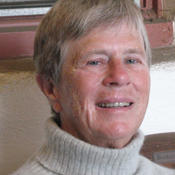
Professor and Associate Dean of the Faculty, School of Dramatic Arts
—
Velina Hasu Houston’s most popular work is her critically acclaimed play Tea. It and many of her other works have been presented internationally, garnering more than three-dozen writing awards. Her other critically acclaimed plays include Asa Ga Kimashita, Kokoro, The Matsuyama Mirror, Hula Heart, Ikebana (Living Flowers), Shedding the Tiger, and Waiting for Tadashi. She has been recognized three times by The John F. Kennedy Center for the Performing Arts, twice been selected as a Rockefeller Foundation playwriting fellow, and was a recipient of a Japan Foundation fellowship and a Lila Wallace-Readers Digest Foundation grant. She was chosen as the inaugural recipient of the Remy Martin New Vision Award from Sidney Poitier and the American Film Institute. Houston is also a published poet and essayist; and writes for film, radio and television as well. A specialist in Pan-Asian American feminist dramatic literature, she edited the anthologies The Politics of Life: Four Plays by Asian American Women and But Still, Like Air, I’ll Rise: New Asian American Plays. She has lectured at institutions nationwide and taught screenwriting at the University of California, Los Angeles School of Theatre, Film and Television. Houston teaches courses in Playwriting, Theatre History and Literature.
E-mail: greentea@usc.edu
Susan H. Kamei
Adjunct Professor (Teaching)
—
Susan H. Kamei is recognized as one of America’s most prominent and visible scholars on Japanese American incarceration during World War II. Her book When Can We Go Back to America? Voices of Japanese American Incarceration during World War II (Simon & Schuster 2021) has received critical acclaim for its riveting, meticulously researched, and comprehensive historical narrative of the wartime imprisonment of the more than 125,000 persons of Japanese ancestry and its enduring impact. She created and teaches a USC Dornsife history course about the constitutional and sociopolitical issues of the Japanese American incarceration and the relevance of those issues today.
E-mail: kamei@usc.edu
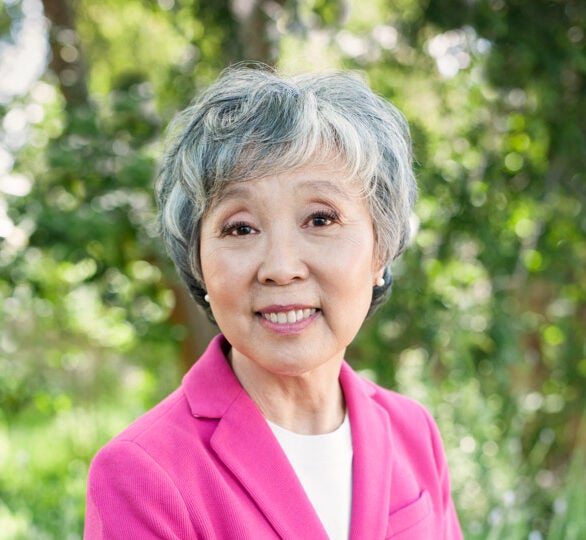
Associate Professor, International Relations
—
Saori N. Katada is the author of a book, Banking on Stability: Japan and the Cross-Pacific Dynamics of International Financial Crisis Management (University of Michigan Press, 2001), which was awarded Masayoshi Ohira Memorial Book Award in 2002. She also has three co-edited books: Global Governance: Germany and Japan in International System (Ashgate, 2004), Cross Regional Trade Agreements: Understanding Permeated Regionalism in East Asia (Springer, 2008), and Competitive Regionalism: FTA Diffusion in the Pacific Rim (Palgrave Macmillan 2009). She has written numerous articles on international political economy including topics such as regional integration, foreign aid policy, financial politics and free trade agreements. Her current research focuses on the trade, financial and monetary cooperation in East Asia, and the impact of the global financial crisis on Japanese financial politics and regional integration efforts.
E-mail: skatada@usc.edu
Associate Professor, History and American Studies and Ethnicity
—
Lon Kurashige studies racial ideologies, politics of identity, emigration/immigration, historiography, cultural enactments, and social reproduction, particularly as they pertain to Asians in the United States. He is the author of Japanese American Celebration and Conflict: A History of Ethnic Identity and Festival, 1934-1990 (University of California Press, 2002), and co-author of Major Problems in Asian American History (Houghton Mifflin, 2002).
E-mail: kurashig@usc.edu
Akira Mizuta Lippit
Professor, Comparative Literature and East Asian Languages and Cultures; Chair, Division of Critical Studies, School of Cinematic Arts
Akira Lippit’s teaching and research focus on four primary areas: the history and theory of cinema, world literature and critical theory, Japanese film and culture, and visual cultural studies. Lippit’s published work reflects these areas and includes two books, Atomic Light (Shadow Optics) (University of Minnesota Press, 2005) and Electric Animal: Toward a Rhetoric of Wildlife (University of Minnesota Press, 2000). In addition to his two completed books, Lippit is presently finishing a book-length study on contemporary experimental film and video, and has begun research for a book on contemporary Japanese cinema, which looks at the relationship of late-twentieth and early twenty-first century Japanese culture to the concept of the world.
E-mail: lippit@usc.edu
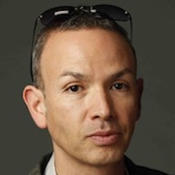
Benjamin Uchiyama
Assistant Professor of History
Benjamin Uchiyama studies modern Japanese history, focusing on the social and cultural history of wartime Japan during the 1930s and 1940s. He is currently finishing a book manuscript on the cultural history of Japanese home front. His other projects include the Yokusan culture movement and a social history of the black market in late wartime/early postwar Japan.
E-mail: buchiyam@usc.edu
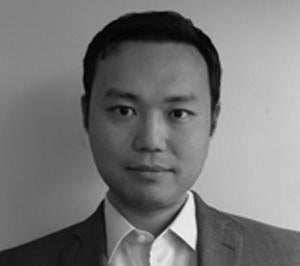
Kerim Yasar
Assistant Professor of East Asian Languages and Cultures
Kerim Yasar specializes in modern Japanese literature and cinema, media history, and translation studies. His first book, Electrified Voices: Auditory Technology and Culture in Prewar Japan (forthcoming from Columbia University Press in 2018), examines the roles played by the telegraph, telephone, phonograph, radio, and sound film in the discursive, aesthetic, and ideological practices of Japan from 1868 to 1945. His second project, tentatively entitled Gestures in Light: The Body in Japanese Cinema, is a critical and theoretical meditation on physical expressivity and representations of the body in Japanese film from the silent era to the early twenty-first century; at the same time, it offers a concise history of the development of film acting as a performance tradition in Japan. In addition to this research, Yasar is active as a translator in a variety of genres and media, from contemporary novels to pre-modern poetry to the subtitles for more than a hundred feature films in the Criterion Collection/Janus Films library, including classic works by directors such as Kurosawa Akira, Ozu Yasujiro, and Oshima Nagisa. Prior to coming to USC, Yasar taught at Ohio State, Notre Dame, and Boston University, and was a postdoctoral fellow in the Society of Fellows in the Liberal Arts at Princeton University.
E-mail: kyasar@usc.edu
